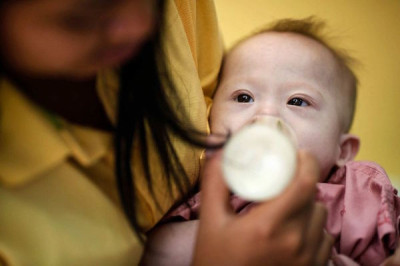How easy is it to bring overseas-born surrogate babies back to Australia and what are their parents' rights?

The baby Gammy case has exposed the pitfalls of the international commercial surrogacy trade. Gammy, a baby with Down syndrome, was left with his Thai surrogate mother while his healthy twin sister returned to Western Australia to live with her biological father and his wife. Since then, two Australian couples have been temporarily stopped from leaving Thailand with their surrogate children. Thai authorities are considering draft legislation that may shut down the commercial surrogacy trade.
A Family Law Council report, recently released by Attorney-General George Brandis, says "a significant and apparently growing number of children are being born as a result of commercial surrogacy arrangements outside Australia (more than several hundred each year)".
The spate of cases raises questions about the legal rights a child born to an overseas surrogate has in Australia, and what rights Australians who engage in surrogacy agreements have in Thailand and other countries.
Obtaining Australian citizenship
When a baby is born to a surrogate mother in Thailand or India, euphoria may be quickly overcome by the legal minefield that must be navigated to get the baby Australian citizenship, a passport, and eventually to achieve the legal status having an Australian parent.
In addition to the general documents required for Australian citizenship, when a child is born as a result of a surrogacy arrangement there needs to be a certified copy of the agreement and evidence that the child is the biological child of the "commissioning" parent. The commissioning parent and child "need" to undergo DNA testing.
Nonetheless, the bans on overseas surrogacy agreements in some states raise a number of questions for a couple returning with a surrogate child from Thailand or India.
While the federal Immigration Department may grant the child citizenship, the department warns commissioning parents that overseas surrogacy arrangements may not fulfil the requirements for a transfer of legal parentage under state law. The department says this "may be because the arrangement entered into is commercial in nature and/or the parties may not have received counselling or independent legal advice". The Department of Foreign Affairs says "under Australian law, the surrogate mother may have parental responsibility for the child she gave birth to regardless of whether she has a biological connection, is listed on the child's birth certificate or is considered to have parental responsibility under local law".





